Janis Karpinski Quotes & Sayings
23 most famous Janis Karpinski quotes and sayings (soldier). These are the first 10 quotes we have.
“Shortly after we arrived in Baghdad, we had another conversation with the ambassador. He said that he wanted us to give him the timeline, because we had 90 days to get these prisons operational and transfer responsibility back to the Iraqis.”
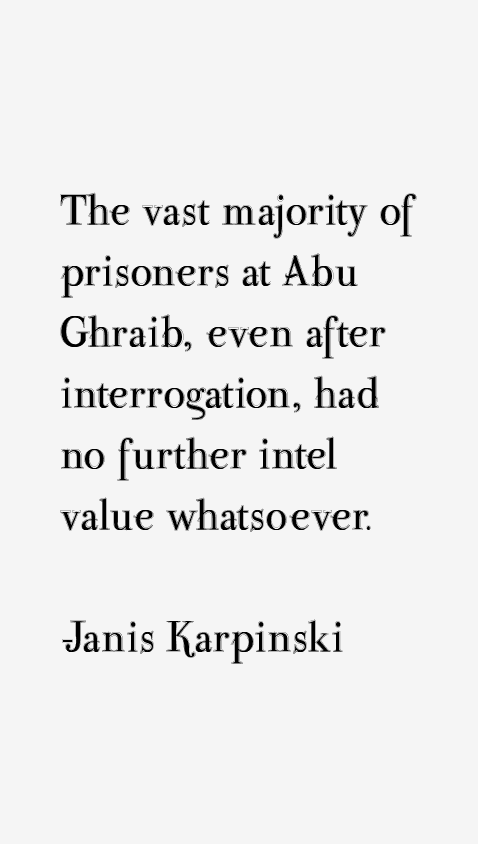
“The vast majority of prisoners at Abu Ghraib, even after interrogation, had no further intel value whatsoever.”
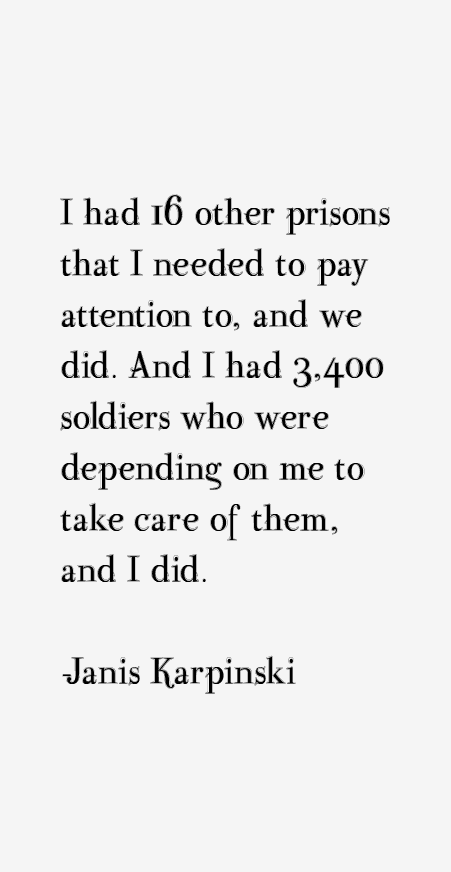
“I had 16 other prisons that I needed to pay attention to, and we did. And I had 3,400 soldiers who were depending on me to take care of them, and I did.”
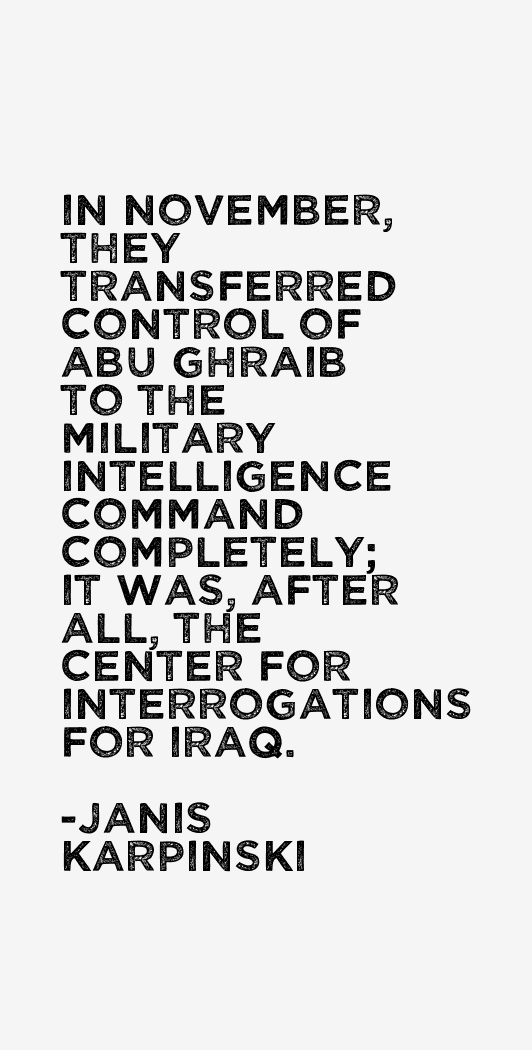
“In November, they transferred control of Abu Ghraib to the military intelligence command completely; it was, after all, the center for interrogations for Iraq.”
“We need to fix this. It hasn't been done yet because there's still a reluctance to admit that there was even a problem - anywhere above seven rogue soldiers who got out of control on the night shift.”

“Military intelligence interrogators, however, their goal is to get information, to save lives, to stop the war, to find Saddam - whatever the information is going to be used for, at whatever cost.”
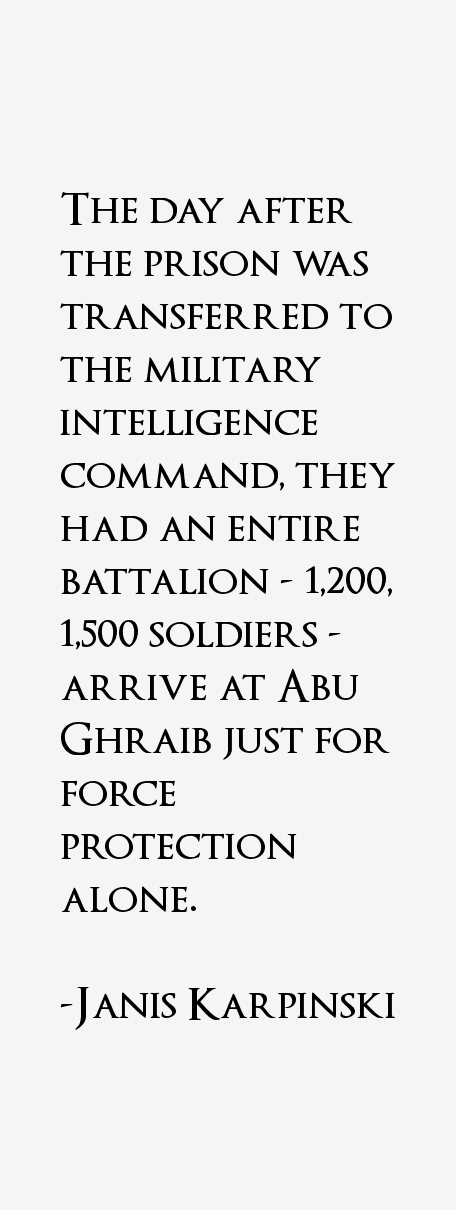
“The day after the prison was transferred to the military intelligence command, they had an entire battalion - 1,200, 1,500 soldiers - arrive at Abu Ghraib just for force protection alone.”
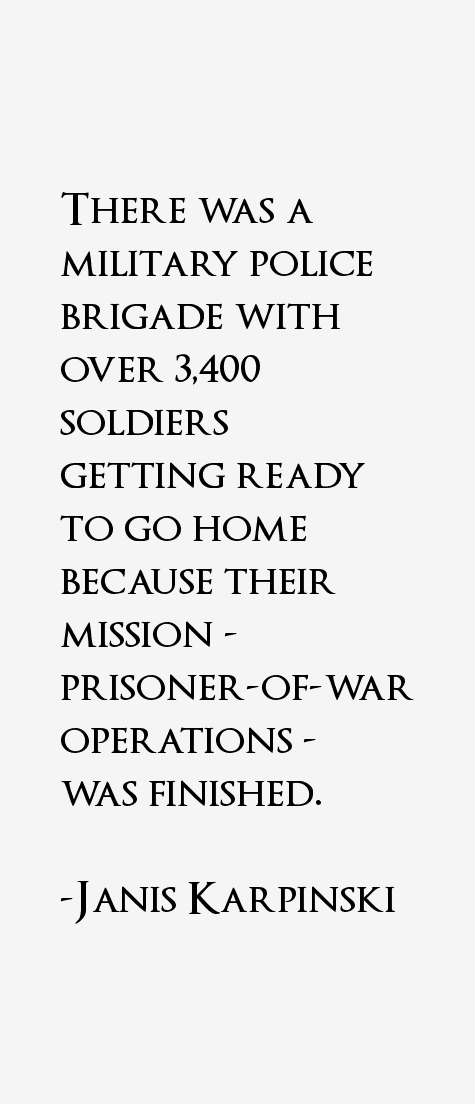
“There was a military police brigade with over 3,400 soldiers getting ready to go home because their mission - prisoner-of-war operations - was finished.”
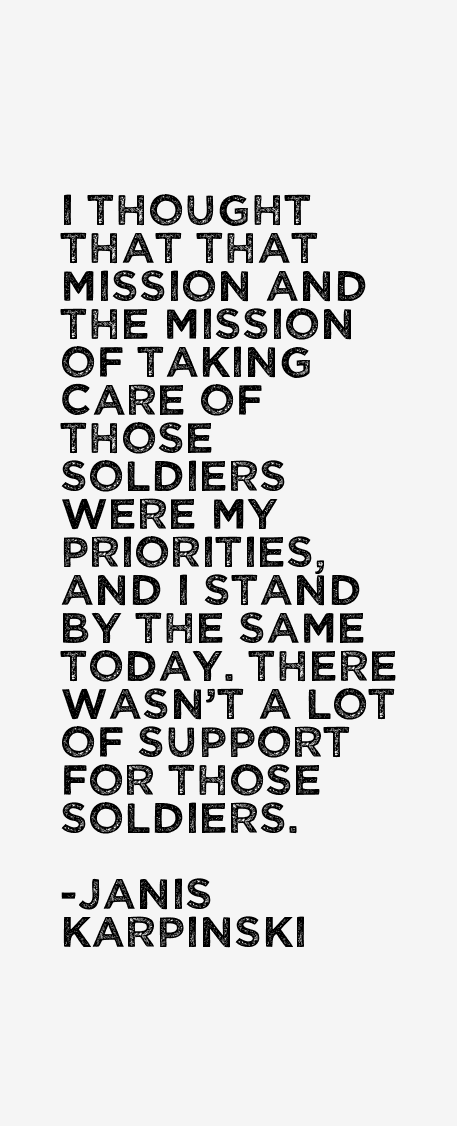
“I thought that that mission and the mission of taking care of those soldiers were my priorities, and I stand by the same today. There wasn't a lot of support for those soldiers.”
“It's hard to be happy when you are facing 120 to 140 degree temperatures and nothing seems to be moving in a direction that you think or they think or you've been told it's supposed to be moving in.”
Janis Karpinski Quotes Rating
No Ratings Yet
Leave A Comment
























